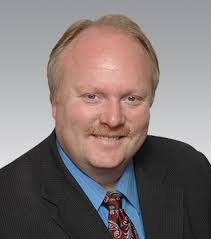Updated 18 February 2025
On 5 February 2025, Carrie Tait of the Globe and Mail broke the story of the dismissal of Athana Mentzelopoulos who was the President and Chief Executive Officer of Alberta Health Services (AHS). Since that date Ms. Mentzelapoulous has entered a statement of claim at the Court of King’s Bench seeking:
a. Judgment for pay in lieu of notice in the amount of $583,443.00, less applicable income tax;
b. Judgment for bad faith, aggravated, and/or punitive damages, in the amount of $1,116,557.00;
c. In the alternative, judgment for damages for breach of contract in the sum currently estimated at $1,700,000.00, less applicable income tax, being the balance of the compensation owed under the Employment Agreement, or such further and other amount as this Honourable Court deems appropriate;
d. Such further and other remedies as this Honourable Court deems appropriate; and
e. Costs and pre-judgment interest.

A PDF of the filing digitally dated 12 February 2025 is below.
827797277-Statement-of-Claim-Mentzelopoulos
Since then this story has been front page news in Alberta and many articles, hyper-linked below, have shed more light on the damning 17-page Statement of Claim.
‘Bush League’: Smith’s Internal Review for AHS Mess Slammed | The Tyee – Charles Rusnell, 12 February 2025
Health Care Corruption Allegations Rock Smith Government | The Tyee – David Climenhaga, 7 February 2025
More Turmoil at Alberta Health Services, CEO Out | The Tyee David Climenhaga- 9 January 2025
Former AHS CEO’s lawsuit alleges pressure to sign private surgery deals she believed were overpriced | CBC News – Jason Markusoff, 12 February, updated 14 February 2025
Fired health CEO details alleged wrongdoing in $1.7-million lawsuit | Calgary Herald -Don Braid, 12 February 2025
David Staples: Smith gets black eye in fight with medical establishment | Edmonton Journal– David Staples, 11 February 2025.
The Anatomy of a Political Scandal – by Jared Wesley Decoding Politics- Jared Wesley 7 February 2025.
It should be emphasized that Ms. Mentzelopoulos’s allegations have not been tested in court. Minister LaGrange promises a vigourous defence. Her defence must be delivered to the Court within 20 days, that is around 5 March.
Recruitment
The former CEO’s statement of claim is a detailed account, beginning with her hiring in December 2023. Mentzelopoulos was the Executive Director of the Alberta Medical Association from 1 October 2023 to 7 December 2023 when she signed a 4-year employment contract to become CEO of AHS.
However, in the Fall of 2023 Mentzelopoulos was recruited – and pressured – by Tremblay and other Government officials to leave AMA and become the President and CEO of AHS. In December 2023, as a direct result of this recruitment and pressure by Government officials, Mentzelopoulos agreed to resign her position with AMA and become the President and CEO of AHS (para 14, Statement of Claim -SoC).
The Provincial Health Agencies Act, which came into force on 30 May 2024, spells out the role of the provincial health agencies under the new arrangements in the health system. The complex statute grants the minister of health considerable oversight authority in keeping with the premier’s goal of remoulding the health care system. A key component of shaping the system to her liking includes putting in place people who support Smith government’s initiatives. The hiring of Mentzelopoulos, well known to the UCP government was consistent with these goals.
The role of the AHS board

In November 2023, the new board was appointed whose members included Dr. Lyle Oberg as chair, Andre Tremblay, deputy minister of Health, Evan Romanow, deputy minister of Mental Health and Addiction, Cynthia Farmer, deputy minister of Seniors, Community and Social Services, Sandy Edmonstone and Paul Haggis. The placement of three deputies out of what was to become seven members certainly gives the government more control than other appointed boards which usually have no deputies or one deputy on board. Both Haggis and Oberg were early appointments by the Smith government in the health restructuring process and must have shared the government’s objectives to significantly restructure the health care delivery system. At the time of Mentzelopoulos’s dismissal, Angela Fong, a former AIMCo executive, was the AHS chair. She became chair replacing Oberg on 19 September 2024. Oberg remained a member of the board.

From the statement of claim, Mentzelopoulos kept the board abreast of the continuing examination of procurement contracts. On 7 January at a special board meeting, minister LaGrange ” demanded” the firing of the AHS CEO. The board refused.
This was not the first time an AHS CEO was fired. In November 2010 AHS CEO Dr. Stephen Duckett was fired by the board but several members of the board resigned over the action. Then in April 2022, before Danielle Smith became UCP leader, Dr. Verna Yiu was removed from her CEO post as the Kenney government was assailed by critics of his handling, and AHS’s handling, of the COVID-19 crisis.
Shortly after Danielle Smith became premier, in late 2022 the board of AHS was fired. The province appointed John Cowell as the official administrator of AHS, to oversee some changes before the four-part dismantling of AHS was announced in 2023.
From the historical record, appointment to the board of AHS has been fraught with clashing visions of health care delivery, business ethics, and politicization. One must assume that the vetting process for the board was thorough and that board members are also vetted by the minister and possibly the premier. To see a board consisting of three of seven government officials, refusing the direction of a minister to dismiss a CEO is a rare display of courage. Not only did the board refuse to fire the CEO but after a briefing in December 2024 “the AHS Board recommended that the investigation and audit be expanded and that Mentzelopoulos should consider bringing the matter
to the attention of the RCMP”(para 60). Not surprisingly the board was dismissed at the end of January, “in particular the Directors who had supported Mentzelopoulos and the AHS investigation and forensic audit initiatives (para 72).
In other words, Mentzelopoulos was purportedly terminated capriciously, arbitrarily, and in bad faith because she was actually carrying out her duties for AHS (para 11, SoC).
The role of public servants
The principal public servants Mentzelopoulos dealt with during here short stint at AHS was Andre Tremblay, the deputy minister of health and who also was a member of the AHS board. As noted above, it was Tremblay and other provincial public servants who “pressured” Mentzelopoulos to join AHS.

According to the SoC, the efforts “of public servants to increase prices being paid to private suppliers, both in excess of prices being paid to other private suppliers and also internal AHS costing, ran contrary to her extensive experience in government negotiations” (para. 17). This is an alarming claim because the role of a public servant and the convention of a non-partisan civil service is to protect the public purse as well as politicians from self-interested behaviour of government contractors.
In this respect in June 2024, Mentzelopoulos wrote to Tremblay and Associate Deputy Minister of Health Darren Hedley about the contract with Alberta Surgical Services (ASG) which was projected “to exceed the contract value by almost $3.5 million in billings but was also being projected to not deliver the required number of surgical procedures under its contract with AHS” (para 22). In this exchange, Mentzelopoulos received no response and assumed, incorrectly it transpired, that the Health department agreed with her concerns.
Non-response appears to be a technique employed when matters uncomfortable are raised with senior officials appointed at the pleasure of the provincial cabinet.
In July, the Health department began its campaign to limit Mentzelopoulos’s ability to sign off on contracts purporting to place this authority in Alberta Health. She refused to sign off on authority she had been given (para 23). Next followed in August a direction from unnamed Alberta Health officials to meet specifically with
ASG to discuss the status of their contract, which must have had the blessing of the health deputy. It was at this meeting that Mentzelopoulos learned the problems with the ASG contracting process.
ASG officials alleged that they had been told that the current contract would not be binding in terms of pricing and services, and that there was some kind of “contingency” provision if ASG exceeded the volume of contractual surgical procedures. (Para 28)
Her suspicions appeared to lead her to dig more deeply into the contracting process and she advised the health deputy accordingly at the end of August. In particular she advised Tremblay that she was pausing contract negotiations with ASG until AHS had completed a review of the potential costing and review of contract terms as well as .
negotiations on other Chartered Surgical Facilities (CSF) pending a review of the ASG contract (para 31).
During 2024, Mentzelopoulos also learned that ASG was being promoted by former MLA Doug Horner, and that ASG had somehow been awarded a 2-year CSF contract despite having been uncompetitive in the initial RFP process for CSF contracts (Para. 16, SoC).
The next contact came in early October when she met with Tremblay and associate deputy minister of Health, Hedley. The purpose of the meeting was to recommend a new pricing and a “regulated rate” for the new ASG contract extension and other CSFs. This recommendation was in response to Alberta Health’s desire to expedite the CSF contracts. At the 3 October meeting, Mentzelopoulos advised Alberta Health representatives that, “in her view, if the prices offered for services were defensible, then concerns about process could be obviated” (para 37). Alberta Health indicated they would “work on the issue and would get back to her shortly.”
By this juncture an “us versus them” scenario was unfolding and the department’s response was to strip Mentzelopoulos of powers to negotiate all CSF contract
negotiations, including the renewal contract for ASG. The October Directive also set out specific rates for CSFs that Mentzelopoulos determined were in excess of the most recently negotiated AHS rates and would lead to significantly increased costs to AHS – and potentially hundreds of millions in profits for the CSFs owners” (para 38-emphasis added).
At this juncture a new Health department official Jitendra Prasad enters the picture. Prasad drafted the directive which he would be responsible for executing. Paragraphs 18 to 21 of the SoC describe Prasad as Marshall Smith’s “guy” in the department. Smith at this point was the premier’s Chief of Staff, one of the most powerful figures in any provincial or federal government. Prasad it is alleged was in a prima facie conflict of interest but the deputy health minister was in agreement with Prasad’s appointment which was in 2023.
Prasad was the subject of an 4 October meeting with the deputy minister of Executive Council Ray Gilmour, the premier’s deputy and the most powerful Alberta bureaucrat, along with unspecified “senior government officials.” Mentzelopoulous outlined “her concerns about the relationship between Prasad and Marshall Smith, and potential conflicts involving Prasad, MHCare, and potentially the CSFs. Gilmour said he “would look into it” but Mentzelopoulos never heard back from Gilmour (para 40).

In this situation we have a high level meeting involving the premier’s deputy and involving serious charges about conflicts of interest involving lucrative health contracts. Gilmour’s apparent failure to investigate suggests that either the AHS evidence was weak or the use of MHCare was one of those politically charged files, public servants do not wish to address. Gilmour left in late November to become Acting CEO of the Alberta Investment Management Corporation. MHCare was the object of much media speculation arising gifts of Stanley Cup hockey tickers to the premier and some of her ministers in May and June.
What follows is a series of escalating tensions between the department and Mentzelopoulos involving MHCare. Media inquiries about the bulk purchases of children’s ibuprofen and acetaminophen were handled by Prasad of Alberta Health. However, Mentzelopoulos, when reviewing the response found that Prasad had misrepresented the facts by claiming that MHCare had no role in the contracting process.
Individuals involved in the preparation of the draft reply and the underlying information were then placed on administrative leave, although the administrative leave of one individual employed by Alberta Health was reversed – purportedly at the direction of the Premier’s office. (Para 42.)
It’s not clear if Prasad was placed on administrative leave or if he was on leave, whether it was he whose leave was reversed.
As a result of these events, Mentzelopoulos initiated an inquiry into the contracts MHCare had with AHS, This external forensic audit was being carried by the law firm Borden Ladner Gervais LLP which began in early November 2024. She advised the Auditor General’s office of the existence of the forensic audit. Tellingly, the “Auditor General’s office indicated it had received other requests to investigate MHCare and wanted a dedicated briefing on the results of the AHS investigation and audit” (para 45). It is unclear from the SoC that the Alberta Health department deputy was advised of the contact with the OAG or the existence of the forensic audit. However at a 24 November meeting with Minister LaGrange and Chair Fong, Mentzelopoulos advised that work that had started as a narrow review of one CSF contract in September had necessarily been broadened in early November.” She told LaGrange there were no “hard findings” at that time. After the briefing was completed “Minister LaGrange then told Mentzelopoulos that she wanted her to “wind it up” (para 47).
Tremblay was briefed on the investigations via an email from Mentzelopoulos on 9 December. “This was the first and only request of this nature from Tremblay or
Alberta Health” (para 50). This lapse of time is remarkable because of the sensitivities involved, the ongoing tension surrounding MHCare, and pressures coming from Red Deer and Lethbridge CSFs. The email also raised the ongoing review of the AHS and MHCare’s contract for children’s acetaminophen. A follow-up meeting two days later between Tremblay and the AHS CEO where the deputy raised questions about when the resumption of negotiations on the CSFs would happen. Mentzelopoulos advised that AHS was prepared to restart negotiations immediately but on the basis that they would be carried out following standard government procurement practices to ensure best pricing (para 52- emphasis added).
Supporting the desire for a quick resumption was the response given by Associate deputy Hedley that the “the principals behind the CSFs were “calling every day”
and the pressure was intense” (para 53). It is not entirely clear whether the pressure was coming from politicians as well as the CSFs. On 13 December, Mentzelopoulos sent a draft letter to the principals of the Red Deer and Lethbridge CSFs to restart the negotiations to Alberta Health for comment . Over the week following various drafts and edits were shared. The department removed references to the request about potential involvement of named former AHS employee in the CSFs. The letter was not sent.
Mentzelopoulos also mentions two other encounters with deputy ministers. In mid-December at a reception hosted by the Alberta Investment Management Corporation (AIMCo), Kate White the deputy minister of Treasury Board and Finance asked Mentzelopoulos about “what was going on at Alberta Health and specifically referred to an investigation involving Prasad and “kickbacks” (her phrase)” (para 58). Mentzelopoulos was surprised to learn how another deputy would be given access to this sensitive information. Also it is curious was how the inquiry was being characterized by White- “kickbacks.”
The other deputy ministerial contact was on 2 January 2, 2025, when Mentzelopoulos spoke with the Deputy Minister of Mental Health and Addictions and also a member of the AHS board. She told her
that his (sic) Minister, the Honourable Dan Williams, was “very concerned” about the AHS internal investigations and the forensic audit, including the investigation of “our good friend JP” (JP being a reference to Prasad). The Minister was apparently concerned that the investigation could lead to potential connections between various government officials and Sam Mraiche and MHCare Medical. The Deputy Minister asked Mentzelopoulos if Alberta Health and “Andre” (meaning Tremblay) were saying “to back off and tamp stuff down”.
This is an astonishing phone call to receive from another deputy who was being told by her minister that in effect Prasad and MHCare were “untouchable.” By this point Mentzelopoulos had been told to wind down the investigation. In the month prior to her dismissal, another assistant deputy health minister Chris Nickerson wrote on 23 December to request that all the investigation files be returned including …
all reports, data, or information in its possession necessary to conduct any due diligence for the CSF Procurements or any selected proponent. This includes, without limitation, any findings or reports arising from any investigation or review conducted or initiated by AHS with respect to the CSF Procurements or the selected proponents.(para 62)
In a follow-up response to Nickerson on 6 January Mentzelopolous put on the record that no definitive findings had been made, AHS did not yet have Services Agreements for the CSFs in Central Zone or South Zone and was still “conditional on a variety of factors being met to AHS’ satisfaction;” the selected Central Zone CSF contractor had still “not fulfilled the conditions” under the Letter of Commitment ; and that the AHS had been unable to enter into a Letter of Commitment for the South Zone
CSF contractor due to outstanding due diligence issues; and Mentzelopoulos and AHS officials were scheduled to brief the Auditor General on January 10th (para 65).
After this point, the last public service contact was with Andre Tremblay who purportedly fired her.
Assessment
Overlaying this SoC, but included in the SoC is the ambience of veiled threats to her person as well as “advice” given to Mentzelopoulos. For example, at the beginning of 2024, Marshall Smith, then the premier’s Chief of Staff mentioned that Prasad was “his guy” and “Prasad had been put in place at Alberta Health to make sure that
the Government could “get contracting right” (para. 18). Mentzelopoulos felt “uncomfortable” with this arrangement. In the summer of 2024, Mentzelopoulos was again contacted by Marshall Smith who stated there were “powerful people” were very upset about an AHS paramedic, Nate Pike, who was posting criticisms of the Alberta Government during work hours (para. 24). In addition, the health deputy placed pressure on Mentzelopoulos to terminate purported critics of the Government. including the Chief of Staff of Minister LaGrange sending Mentzelopoulos a screenshot of the allegedly offensive tweet that had been “liked” by one of these individuals (para 25).
This was followed shortly with Marshall Smith advising the AHS CEO that “Sam” was taking action against “Hansard the Cat” who had been writing critically about the government and in order to discover the identity of the person(s) posting under the “Hansard the Cat,”…. “Smith outlined a number of steps, including private detectives, lawyers, and (apparently) hackers, that were being used. In addition Mr. Smith said he would be “would be taken care of for the rest of his life”, somehow in relation to ‘Sam’ “(paras. 26-27).
Then at the end of August, Mentzelopoulos after briefing her board about her concerns,
(O)ut of an abundance of caution, Mentzelopoulos contacted AHS protective services for a risk assessment. AHS protective services undertook a risk assessment and advised Mentzelopoulos that she was unlikely to be at risk of any physical harm, but that the individuals involved in ASG would likely apply political pressure to have her terminated from AHS if she threatened their financial interests (para 32).
This was followed on 23 September by another call from Marshall Smith who advised Mentzelopoulos that there were “serious businessmen” behind the CSFs in Red Deer and Lethbridge who were unhappy with the delays in negotiations, which in turn delayed financings for these facilities (para 34). Finally, on the day Mentzelopoulos was terminated she asked Connie Webster (AHS Executive Director of HRBP and Ability Management) if, “given the circumstances of her termination would she receive resources for her personal protection.” Webster did not answer the question (para 68).
What is most concerning in my mind is the senior bureaucracy’s unwillingness to protect “one of their own.” Mentzelopoulos was an individual with deep experience in government and who was actually sought out to perform the duties of CEO. Why the allegations presented to Alberta’s most senior civil servant, Gilmour were never followed up and the CEO left in the dark, we may never know absent legal discovery. Political interference occurs all the time and public servants generally stand up to protect the public interest. Obviously the senior bureaucracy in Health, Executive Council and Treasury Board and Finance was aware of the problems but did nothing to support the CEO of AHS. This contrasts with the support of the AHS board, or at least the four public members of the board- Fong, Oberg, Haggis and Edmonstone. Mentzelopoulos’s effort to protect the public purse went unanswered and her drive to ensure public procurement was beneficial to the residents of Alberta did not persuade other senior civil servants to close ranks and ensure the audit was brought to a clear conclusion.
It is a common convention that deputy ministers are “non-partisan but politically sensitive.” Deputies typically ensure that principles central to democratic government like ensuring a fair public procurement process are upheld. Instead, we have what looks like a case where one individual, embedded in the health department where serious allegations of substituting private interests before the public interest, is seemingly untouchable. If such conduct is permitted to stand, Alberta is on the way to becoming a banana republic.
Related Posts
Alberta’s Public Accounts Committee- Thoughts on Accountability and Public Service Neutrality